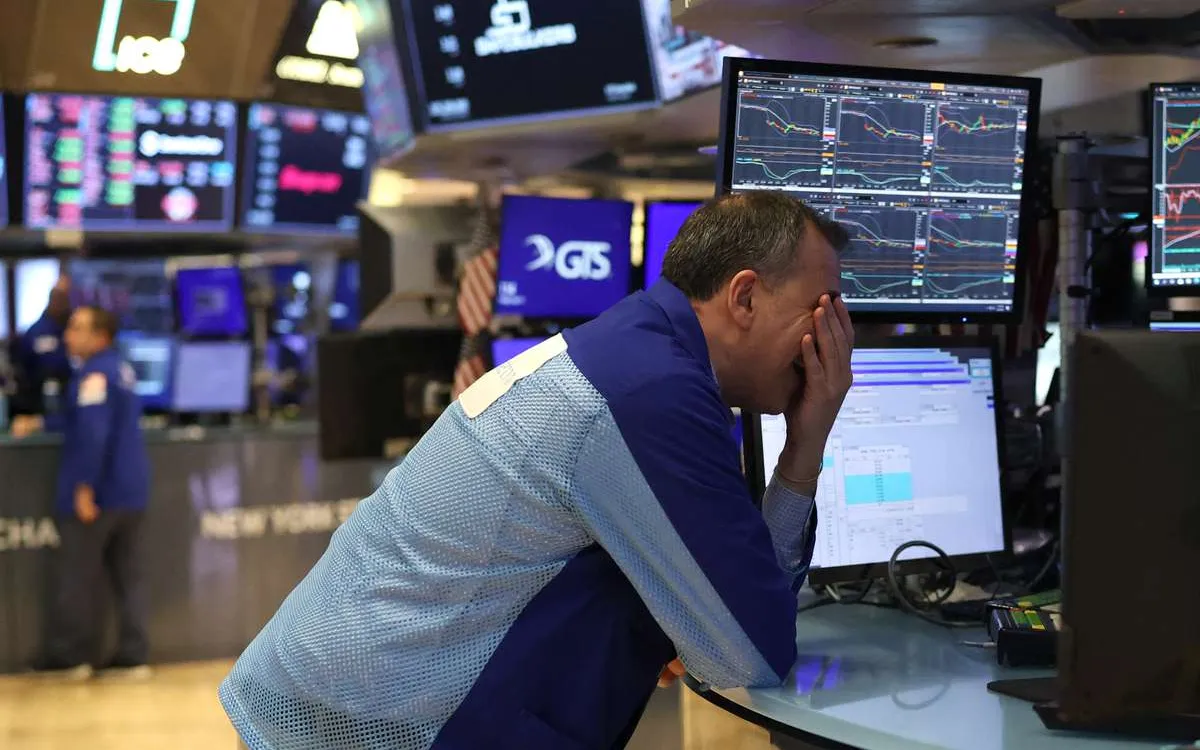
On Sunday evening, U.S. stock futures experienced a significant decline as the Trump administration showed no signs of retracting its extensive plan to impose tariffs. Futures linked to the Dow Jones Industrial Average were recently down 2.2%, indicating a potential drop of more than 800 points at the open on Monday. Meanwhile, futures associated with the S&P 500 and Nasdaq fell by 2.7% and 3.4%, respectively. At one point during the evening, Dow futures had plummeted more than 1,600 points, signaling a turbulent market ahead.
The major indexes are coming off their most challenging week since the early days of the Covid pandemic in March 2020. This downturn followed a steep decline on Thursday and Friday, driven by President Trump's announcement of sweeping tariffs on U.S. trading partners. The benchmark S&P 500 saw a staggering decline of 10.5% over the last two days of the week, while the Dow lost nearly 4,000 points.
Despite the alarming market conditions, White House officials offered no indications over the weekend that President Trump would consider scaling back the proposed tariffs. The newly announced reciprocal tariffs, which include a 20% levy on imports from the European Union, 26% on Japanese imports, and a hefty 34% on imports from China, are set to take effect on Wednesday. The Trump administration has signaled that more sector-specific tariffs are also on the horizon, claiming these measures are essential to restoring competitive balance and revitalizing U.S. manufacturing and job markets.
However, the rapid implementation of these policies and the potential for retaliatory measures from affected countries—similar to China's response on Friday—have raised alarm among economists and investors. There are growing concerns that the economy could be pushed into a recession as a direct result of these tariffs. Speaking on Friday, Federal Reserve Chair Jerome Powell acknowledged that the tariffs were higher than anticipated, which could lead to increased inflation and a slowdown in economic growth. Powell emphasized that the Federal Reserve is seeking greater clarity on the implications of Trump's policies before making any adjustments to interest rates.
The ripple effects of the tariff announcements were felt globally, with Asian stocks tumbling at the start of the trading week. Hong Kong's Hang Seng index plummeted by 9%, while Japan's Nikkei 225 fell by 6%. Additionally, South Korea's Kospi index and Australia's S&P ASX 200 each experienced declines of over 4%.
In the cryptocurrency market, Bitcoin also suffered a sharp decline, mirroring the drop in equities as investors moved away from risky assets. The digital currency recently traded at $78,700, down from an earlier high of nearly $84,000, marking its lowest value since early November.
Amid these growing concerns about slowing global demand, crude oil prices also retreated. West Texas Intermediate futures, the U.S. crude oil benchmark, fell by 2.6% to $60.40 per barrel, having dropped as low as $59.38—its lowest level since last April.
In summary, the combination of escalating tariffs, potential economic repercussions, and global market reactions has set a precarious tone for the financial landscape. Investors will be closely watching how these developments unfold in the coming days.
UPDATE: This article has been updated with the latest information on U.S. stock futures and early trading activity in Asian markets.